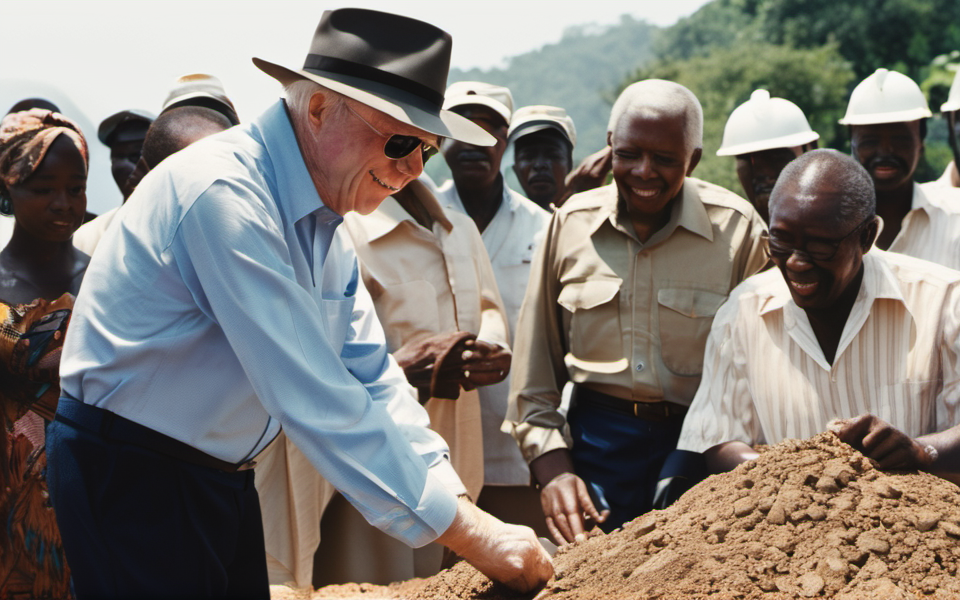You’ve heard of former U.S. presidents who retire to a quiet life, but Jimmy Carter took a different path entirely. Get ready to dive into the life of a man who turned his post-presidency into a mission to make the world a better place.
The Early Years After the White House
When Jimmy Carter left the White House in 1981, he didn’t just fade into the background like many former presidents. Instead, he got busy almost immediately. Picture this: a former President of the United States rolling up his sleeves and diving headfirst into community service. It wasn’t long before Carter founded the Carter Center in 1982. Your jaw might drop when you find out that this Atlanta-based non-profit has engaged in efforts to improve human rights and alleviate suffering in over 80 countries since its inception.
Carter believed that leaving the White House wasn’t the end of his public service but merely the beginning. From spearheading efforts to eradicate diseases in Africa to championing fair elections around the world, the Carter Center has been on a mission to advance peace and health globally. The former president was often seen on the front lines—an image that turned heads and inspired many. Over the years, countless volunteers and activists joined the cause, magnifying the impact of his humanitarian efforts.
Combatting Disease: A Hands-On Approach
One of the most remarkable aspects of Jimmy Carter’s post-presidency has been his hands-on approach to combating disease. You might find it hard to believe, but the Carter Center has played a crucial role in the near-eradication of Guinea worm disease. In the mid-1980s, there were over 3.5 million cases of this debilitating illness annually, mainly in Africa and Asia. Fast forward to today, and that number has been reduced to fewer than a hundred cases per year. Talk about making a difference!
Jimmy Carter didn’t just sit in an office pushing papers around; he traveled to some of the most remote and challenging places on Earth. He personally visited villages, met with local leaders, and spread the word on practical steps to prevent the disease. Distributed resources included water filtration systems and educational materials designed to stop the transmission of Guinea worm larvae. To say his involvement was instrumental would be an understatement. His work brought hope and health to communities that previously had neither.
A Global Advocate for Human Rights
Carter’s commitment to human rights didn’t stop at eradicating disease; he became a global advocate for a range of issues. One of the cornerstones of the Carter Center’s mission has been to support democratic elections worldwide. They have monitored nearly 110 elections in 39 countries to ensure fairness and transparency. Imagine the scope and magnitude of such an endeavor—organizing teams of observers, navigating political complexities, and dealing with logistical nightmares, all to support fledgling democracies. Impressively, Carter often led the delegations himself, underlining his personal dedication.
His advocacy didn’t stop at politics. The Carter Center has also been outspoken against global injustices, including issues like gender inequality and the marginalization of various groups. Carter’s words and actions have provided a powerful voice for the voiceless. Many credit him for influencing policy changes and inspiring new waves of activism. Whether it’s campaigning for the rights of women or opposing apartheid in South Africa, Carter’s voice has been a consistent call for justice and equality.
Building Homes and Building Hope
Jimmy Carter didn’t just focus on international affairs; he also brought his humanitarian efforts back home. Perhaps one of his most visible commitments has been his long-standing work with Habitat for Humanity. Picture an aging former president hammering nails and carrying lumber—an inspiring sight, right? This image encapsulates Carter’s philosophy perfectly: no one is too important to lend a hand.
Since 1984, Carter and his wife Rosalynn have been deeply involved with Habitat for Humanity’s mission to build affordable housing for those in need. They didn’t just stop at fundraising; they participated in the building process themselves, side by side with volunteers and future homeowners. People who worked with him often remarked that his genuine kindness and hardworking spirit were contagious. The Carters helped construct homes in the United States and around the globe, giving countless families a stable place to live.
The Legacy of a Lifetime of Service
When historians look back on Jimmy Carter’s life, his post-presidency humanitarian work will undoubtedly stand out as one of his most impactful legacies. Unlike many who might consider retirement a time for relaxation and leisure, Carter used his golden years to make a worldwide difference. His relentless energy and unwavering commitment to peace, health, and human rights have inspired millions and will continue to do so for generations to come.
Jimmy Carter once said, “My faith demands that I do whatever I can, wherever I can, whenever I can, for as long as I can, with whatever I have, to try to make a difference.” And make a difference he did. The world is undoubtedly a better place thanks to his tireless work and boundless compassion. So, the next time you think of Jimmy Carter, remember that his story is far from over. In many ways, it’s only just begun.






